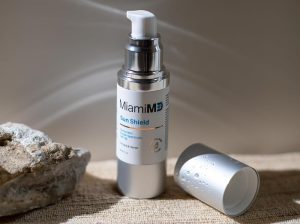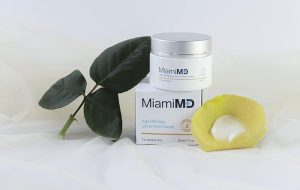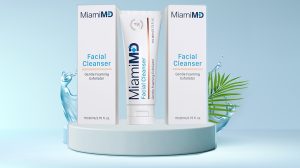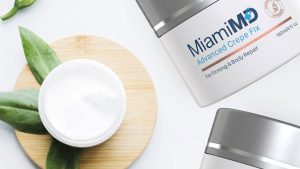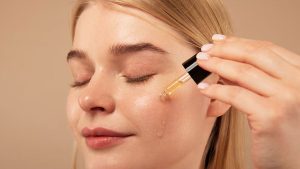Looking for the best sunscreen for dry skin? You’re not alone. Dry skin needs more than sun protection — it craves hydration and barrier support. The right sunscreen shields your skin from UV damage while replenishing lost moisture, but the wrong sunscreen can leave your skin feeling tight, flaky, or even more irritated.
Dry skin requires a gentle, nourishing formula that shields against harmful UV rays, replenishes lost moisture, and strengthens the skin barrier. With so many options out there, it’s important to know what to look for in dry skin sun care to keep your skin healthy, hydrated, and glowing. Let’s break it down.
What Is Dry Skin?
Dry skin occurs when the skin lacks enough moisture to stay soft, smooth, and healthy. It can feel tight, rough, and sometimes even flaky or irritated.
If you’ve got dry skin, you’ve probably noticed it’s more sensitive to things like cold weather, wind, and sun exposure.
“Dry skin often struggles to retain moisture because of an impaired skin barrier,” explains Dr. Michelle Tan, a board-certified dermatologist. “This makes it even more important to use products that hydrate while protecting from environmental damage, like sunscreen” (1).
How Can Sun Exposure Affect Dry Skin?
If you have dry skin, spending time in the sun without proper protection can make things go from bad to worse. Sun exposure doesn’t just leave your skin feeling drier. It can cause deeper, long-term damage that’s much harder to fix.
The sun’s UV rays zap your skin of its natural moisture and oils, leaving it feeling tight, flaky, and irritated. Over time, this can weaken your skin’s natural barrier, speed up the signs of aging, and lead to visible issues like dark spots and fine lines.
Here’s how the sun can really take a toll on dry skin:
Skin Barrier Damage
Your skin barrier is like a protective shield that keeps moisture in and harmful irritants out. When it’s healthy, this barrier helps your skin stay hydrated, smooth, and resilient.
However, prolonged exposure to UV rays can compromise this crucial defense system. UV damage breaks down the lipids in your skin barrier, making it less effective at holding onto moisture.
As a result, your skin becomes drier, more sensitive, and more prone to irritation.
Reduced Collagen and Elasticity
Collagen and elastin are the building blocks of youthful, firm skin. Collagen keeps your skin plump and smooth, while elastin gives it that bouncy, elastic quality.
Unfortunately, UV rays from the sun can break down these proteins over time, leading to a loss of firmness and elasticity.
Photoaging
Photoaging refers to the premature aging of the skin caused by UV radiation. Dry skin is already more prone to wrinkles and dark spots, and sun exposure can accelerate these issues.
“People with dry skin are especially prone to photoaging,” says Dr. Lisa Chang, a skincare specialist. “The combination of sun exposure and dehydration can lead to uneven skin tone, dark spots, and a more pronounced appearance of fine lines” (2).
What Is Sunscreen?
Sunscreen is one of the most important steps in any skincare routine, designed to protect your skin from the harmful effects of the sun’s UV rays. These rays come in two types: UVA, which causes premature aging, and UVB, which leads to sunburn and increases the risk of skin cancer.
A good sunscreen works by either absorbing these rays so they don’t penetrate your skin or reflecting them away before they can cause any harm.
If your skin tends to be dry, picking the right sunscreen is even more important. By protecting your skin from UV rays, you’re also helping to keep it moisturized and healthy.
Sunscreens with hydrating ingredients like aloe vera, hyaluronic acid, or glycerin can do double duty by locking in moisture while shielding your skin from the sun.
What Are the Benefits of Sunscreen for Dry Skin?
If you have dry skin, sunscreen is more than just a way to avoid sunburn. It’s essential for keeping your skin healthy, hydrated, and protected. The primary job of sunscreen is to shield your skin from the sun’s harmful UV rays. And the right formula can also work to prevent additional dryness and support your skin’s overall moisture levels.
Choosing a sunscreen designed specifically for dry skin can make a noticeable difference in how your skin looks and feels throughout the day.
Here’s how sunscreen can benefit dry skin:
Prevents Moisture Loss
Many sunscreens formulated for dry skin are enriched with hydrating ingredients like glycerin, ceramides, or hyaluronic acid. These ingredients work together to lock in moisture and keep your skin feeling soft and smooth.
Not only does this prevent your skin from becoming tight or flaky, but it also ensures your skin stays hydrated even when exposed to harsh environmental conditions.
Protects Against UV Damage
Sun exposure is one of the biggest culprits behind skin damage, and for dry skin, it can make things worse. UV rays don’t just cause sunburn. They break down your skin’s natural oils and weaken its ability to retain moisture.
By blocking harmful UVA and UVB rays, sunscreen helps prevent this cycle of damage, keeping your skin healthier in the long term.
Supports the Skin Barrier
Your skin’s barrier is responsible for keeping moisture in and irritants out. But UV damage can weaken it over time. Sunscreen helps protect this barrier by preventing sun-related damage that can lead to inflammation, dryness, and sensitivity.
“Hydrating sunscreens are like two products in one,” says Dr. Tan. “They protect your skin from UV rays while also reinforcing the skin’s natural moisture barrier. That’s a win-win for anyone with dry skin” (3).
What To Look for in Sunscreen for Dry Skin
When shopping for sunscreen, it’s important to choose formulas that cater specifically to the needs of dry skin. The right sunscreen won’t just protect your skin from harmful UV rays. It will also provide hydration and support for your skin barrier.
Focusing on products with moisturizing ingredients and skin-friendly formulations can keep skin feeling soft, comfortable, and nourished all day long.
Here are the key features you should prioritize:
High SPF
Choose a sunscreen with at least SPF 30, but higher is better. This ensures your skin gets adequate protection from both UVA and UVB rays. For dry skin, higher SPF options can also help minimize the risk of UV-induced moisture loss and long-term damage.
Broad Spectrum
Broad-spectrum sunscreens protect against both UVA rays, which cause aging, and UVB rays, which cause burning. This dual protection is essential for preventing dryness and preserving your skin’s natural barrier against environmental stressors.
Moisturizing Ingredients
Look for hydrating ingredients like hyaluronic acid, aloe vera, glycerin, and ceramides. These ingredients can help replenish lost moisture and keep your skin soft and smooth.
“Not all sunscreens are created equal,” says Dr. Chang. “If you have dry skin, you need to look for ingredients like aloe vera and ceramides that actively hydrate while protecting” (4).
What Is the Best Sunscreen for Dry Skin?
Finding the right sunscreen for dry skin can be a game-changer. The ideal formula should protect against harmful UV rays and provide lasting hydration and support for your skin barrier.
Sunscreens designed for dry skin often include moisturizing ingredients that help prevent tightness, flakiness, and irritation, keeping your skin comfortable all day.
A standout option for dry skin? Miami MD’s Sun Shield Broad-Spectrum SPF 40. This sunscreen is specifically designed to protect and nourish dry skin, offering:
- SPF 40 Protection: Sufficient protection for daily activities.
- Hydrating Ingredients: Aloe vera and vitamin C provide soothing moisture and antioxidant protection.
- Skin Barrier Support: Helps maintain hydration and protect the skin barrier from sun damage and environmental stressors.
- Lightweight, Non-Greasy Formula: Perfect for daily wear without feeling heavy or sticky.
It’s a dermatologist-recommended choice for anyone looking to combine high-level sun protection with deep hydration.
How To Properly Apply Sunscreen
Using sunscreen correctly is just as important as choosing the right one. Even the best sunscreen won’t work effectively if it’s not applied properly or in the right amount.
Taking the time to apply it correctly ensures your skin gets the full protection it needs from harmful UV rays.
Follow these tips to get the most out of your SPF:
Apply 30 Minutes Before Exposure
Sunscreen needs time to fully absorb into your skin and start working, so apply it at least 30 minutes before heading outside.
Use Enough Sunscreen
Most people don’t use enough sunscreen. A good rule of thumb is to use about a nickel-sized amount for your face and two tablespoons for your body.
Reapply Every Two Hours
Sunscreen wears off over time, especially if you’re sweating or swimming. For continuous protection, reapply every two hours.
The Bottom Line
If you have dry skin, sunscreen is your best friend — not just for sun protection, but also for keeping your skin hydrated and healthy. Look for a high-SPF, broad-spectrum formula with moisturizing ingredients like aloe vera or hyaluronic acid, and don’t forget to reapply throughout the day.
For a sunscreen that checks all the boxes, Miami MD’s Sun Shield Broad-Spectrum SPF 40 is an excellent choice. It’s packed with hydrating ingredients, offers superior sun protection, and helps support your skin’s natural barrier.
Protecting your skin from UV damage doesn’t have to come at the expense of hydration. With the right sunscreen, you can enjoy the sun safely while keeping your skin smooth, soft, and glowing!
Resources:
- Karger. The Skin Barrier and Moisturization: Function, Disruption, and Mechanisms of Repair.
https://karger.com/spp/article/36/4/174/863006/The-Skin-Barrier-and-Moisturization-Function - Cleveland Clinic. Sun-damaged Skin (Photoaging).
https://my.clevelandclinic.org/health/diseases/5240-sun-damage-protecting-yourself - Cleveland Clinic. How To Know If Your Skin Barrier Is Damaged.
https://health.clevelandclinic.org/skin-barrier - PubMed. The structure, function, and importance of ceramides in skin and their use as therapeutic agents in skin-care products.
https://pubmed.ncbi.nlm.nih.gov/24656726/
